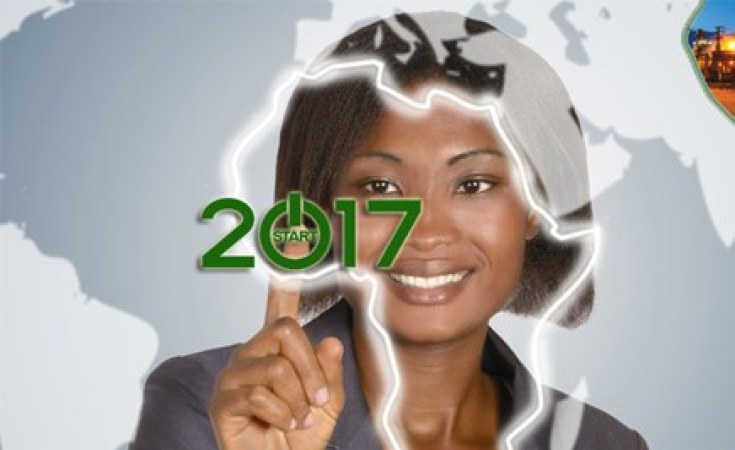At the African Development Bank, 2016 was a transformative year. It was a year of operational accomplishment and institutional renewal.
At the institutional level, the Bank made significant progress in moving its transformation agenda forward. The year started with the launch of the New Deal on Energy for Africa, and a Transformative Partnership on Energy at the World Economic Forum in Davos. The Board discussed and approved four of the High 5 strategies. The Board also approved the New Development and Business Delivery Model (DBDM) and an updated decentralization action plan.
With these approvals, the Bank is now ready to fully roll out its new Development and Business Delivery Model (DBDM) to achieve greater developmental impacts. The DBDM will move the Bank closer to its clients and streamline the business processes as well as improve institutional effectiveness and financial performance. In addition, the approval of a competitive salary structure for both internationally and locally recruited staff and the establishment of performance contracts and completion of the recruitment of the new senior management team were among the key milestones.
On the operational side, the Bank also responded to the needs of its clients. In 2016, the continent's growth rate slowed down due to a difficult global environment. The Bank moved quickly to provide the support needed to some of its biggest member countries as they dealt with falling commodity prices. The Board approved a budget support worth US $1 billion to Nigeria to help the country deal with declining oil prices. The Bank supported Algeria's industrial and energy support programme with a €900-million loan and funded Phase II of Egypt's economic governance and energy support program for US $500 million
The AfDB's work in agriculture has delivered a wide range of benefits to farmers: better seeds, irrigation and sustainable technologies, and greater access to finance and markets. Bank projects have increased yields, production levels and incomes for farmers, resulting in more dynamic local economies. The Board approved US $250 million in support for the ENABLE Youth program in Nigeria, to contribute to job creation, food security and nutrition, rural income generation and improved livelihoods for youths in both urban and rural areas.
The African continent will have more than 800 million urban residents in 2030 and the figure is expected to multiply to 1.2 billion by 2050. In light of this population explosion, the continent's rapid urbanization and the growth of megacities comes with a corresponding demand for infrastructure. The AfDB has invested heavily in energy, infrastructure, provision of drinkable water and sanitation, integration, public transport, education and healthcare in an effort to improve living conditions for the majority and create conditions for economic transformation. In December, the Bank approved financing for a €769-million project to improve urban transport in Abidjan. The Board approved US $245 million in loans and grants to Uganda and Rwanda to finance a transport project that will boost regional trade and reduce traffic congesting between Kampala (Busega) City and Mpigi. Accra received a US $83.9-million (UA 60-million) loan for an urban transport project to contribute to integrated transport and urban development solutions in the Greater Accra Region.
In 2016, the Bank played a leading role in the battle against climate change. Its contribution in making the voice of Africa heard received a renewed recognition as this year. The Board of Directors endorsed management's proposal to serve as Trustee to administer and manage the resources of Africa Renewable Energy Initiative (AREI), and also to host the AREI Independent Delivery Unit as requested by African Heads of State and Government. The Bank also led the Africa Pavilion at the COP22 climate talks in Morocco.
The year ended with donors pledging to support the structural transformation of African economies and the Bank's High 5 priorities by agreeing on US $7.06 billion over the next three years to support development projects and programs in the 38 lower income African countries supported by the African Development Fund (ADF). One of the innovations this year is the increased resources for countries affected by a situation of fragility and the private sector.
At the partnership level, 2016 scaled up the Bank's responses through advocacy and the organization of high-level business roundtables in Africa, China, Japan, and Korea. There was enhanced follow-up to ensure aid effectiveness under the Paris Declaration and among multilateral development banks (MDBs). The Bank also established numerous partnerships, with AfDB President Akinwumi Adesina participating in the 5th Korea-Africa Economic Cooperation (KOAFEC) Ministerial Conference in Seoul and the Sixth Tokyo International Conference on African Development (TICAD VI) in Nairobi, Kenya, among others.


